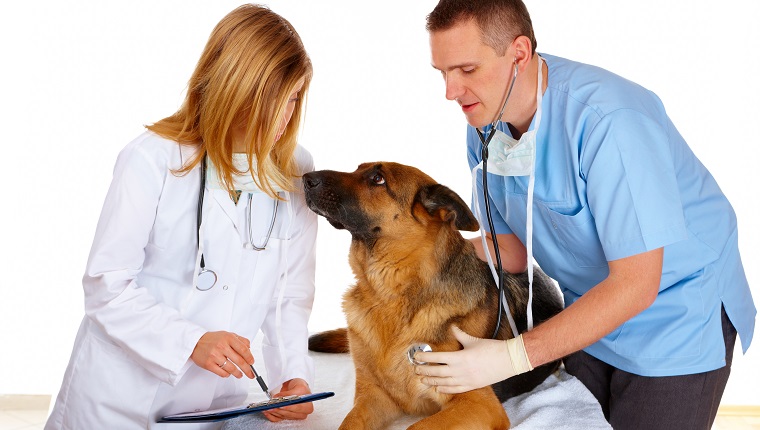Ebstein’s anomaly in dogs is a hereditary congenital heart defect that happens when the opening to a dog’s tricuspid valve is discovered to be abnormal.
It’s generally considered to be a rare condition; although, it does seem to affect specific dog breeds more than others, including German Shepherds, Boxers, and Great Danes.
If you see signs that your dog is developing heart issues, then you must consult your veterinarian for a proper diagnosis and advice. Here’s what you should know about the symptoms, causes, and treatments of Ebstein’s anomaly in dogs.
Symptoms Of Ebstein’s Anomaly In Dogs
Ebstein’s anomaly in dogs can produce a number of symptoms. Some of the most common symptoms include:
- Breathing difficulties
- Problems exercising
- Fluid in the chest
- Swelling around the abdomen
- Fatigue
Causes Of Ebstein’s Anomaly In Dogs

The cause of Ebstein’s anomaly in dogs is congenital, which means that a dog will be born with the condition. While it is quite rare in dogs, certain dog breeds are more predisposed to developing the condition.
Some of the breeds that have a higher predisposition include:
- Boxers
- Labrador Retrievers
- Great Danes
- Irish Setters
- Beagles
- Old English Sheepdogs
- German Shepherds
Veterinary Treatments
If you suspect that your dog has developed Ebstein’s anomaly, your veterinarian will want to ask about your dog’s full medical history including pinpointing any issues that might be specific to the breed.
The vet will carry out a full physical examination, including blood work. Additionally, vets can use X-rays and imaging procedures to examine the chest area.
Treatment can include any of a number of options. Your vet might recommend a surgical procedure to replace the abnormal tricuspid valve. In other cases, vets might suggest medication.
As ever, if your vet prescribes your dog any medicine, it’s vital that you stick to the precise dosage and frequency instructions and complete the full course of medication.
Lifestyle changes, including lowering the amount of sodium in your dog’s diet, can also prove helpful when managing the condition. Likewise, committing to a safe and targeted exercise regimen can help to improve the function of the heart.
Your vet can instruct you on how to make these changes safely.
Has your dog suffered from Ebstein’s anomaly? What steps did your vet take to help manage your pet’s condition? Tell us all about it in the comments below.




